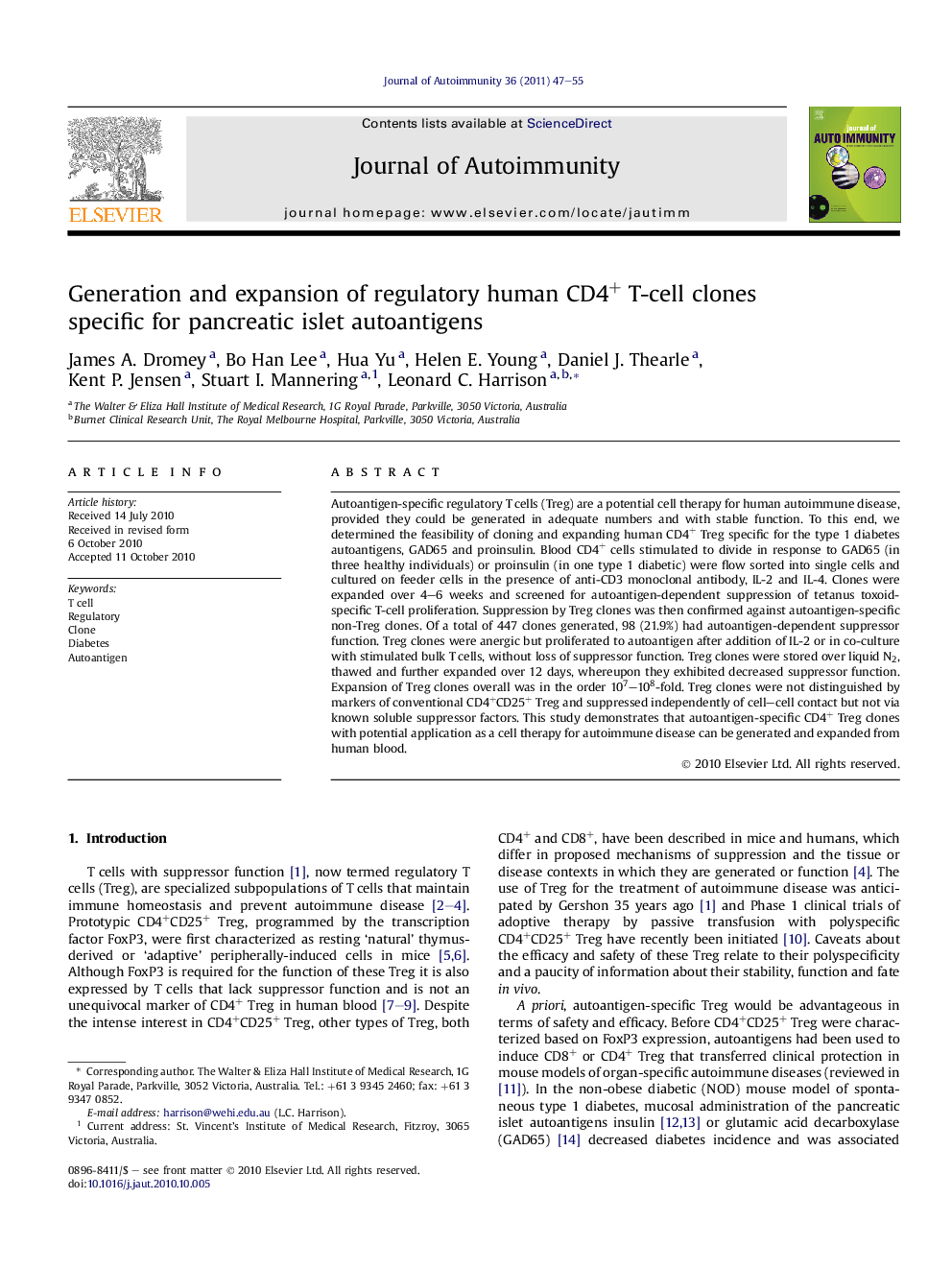| Article ID | Journal | Published Year | Pages | File Type |
|---|---|---|---|---|
| 3368078 | Journal of Autoimmunity | 2011 | 9 Pages |
Autoantigen-specific regulatory T cells (Treg) are a potential cell therapy for human autoimmune disease, provided they could be generated in adequate numbers and with stable function. To this end, we determined the feasibility of cloning and expanding human CD4+ Treg specific for the type 1 diabetes autoantigens, GAD65 and proinsulin. Blood CD4+ cells stimulated to divide in response to GAD65 (in three healthy individuals) or proinsulin (in one type 1 diabetic) were flow sorted into single cells and cultured on feeder cells in the presence of anti-CD3 monoclonal antibody, IL-2 and IL-4. Clones were expanded over 4–6 weeks and screened for autoantigen-dependent suppression of tetanus toxoid-specific T-cell proliferation. Suppression by Treg clones was then confirmed against autoantigen-specific non-Treg clones. Of a total of 447 clones generated, 98 (21.9%) had autoantigen-dependent suppressor function. Treg clones were anergic but proliferated to autoantigen after addition of IL-2 or in co-culture with stimulated bulk T cells, without loss of suppressor function. Treg clones were stored over liquid N2, thawed and further expanded over 12 days, whereupon they exhibited decreased suppressor function. Expansion of Treg clones overall was in the order 107–108-fold. Treg clones were not distinguished by markers of conventional CD4+CD25+ Treg and suppressed independently of cell–cell contact but not via known soluble suppressor factors. This study demonstrates that autoantigen-specific CD4+ Treg clones with potential application as a cell therapy for autoimmune disease can be generated and expanded from human blood.
